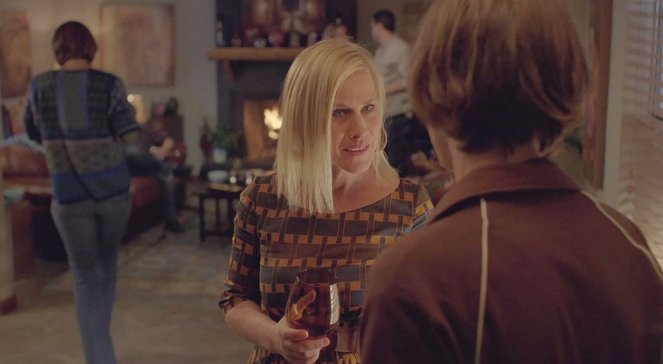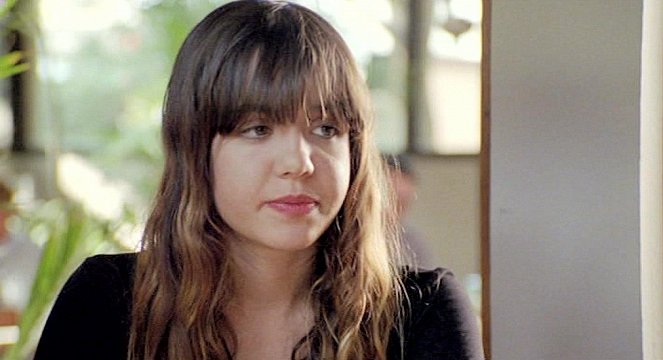Directed by:
Richard LinklaterScreenplay:
Richard LinklaterCast:
Patricia Arquette, Ellar Coltrane, Lorelei Linklater, Ethan Hawke, Steven Chester Prince, Zoe Graham, Nick Krause, Evie Thompson, Tamara Jolaine (more)VOD (4)
Plots(1)
Filmed over the course of 12 years with the same actors, the film chronicles the childhood and coming of age of Mason, as well as his evolving relationship with his divorced parents. His story is revealed via snapshots of adolescence, from road trips and family dinners to birthdays and graduations. (Criterion)
Videos (10)
Reviews (15)
A life story without a single moment to make it worthy of being filmed. We have already seen all of those life fragments elsewhere, where they were part of a higher screenwriting goal. Or we live them at home, so they’re the last thing we want to see at the cinema. Can a person with such a banal life without highs and lows, who never knew the pain of losing a loved one or fell head over heels in love, even be happy? I had been waiting for Richard Linklater to play a little with his characters’ fates, as he had been making this ultimate “life film” for 12 years. But nothing happened. And I’m saying this as someone who loves his Before Sunrise/Before Sunset/Before Midnight trilogy, which consciously and playfully concentrates on a specific topic and shows some development in its delivery.
()
To write and shoot a three-hour film about the elusive meaning of life is something that only a creator who has already created numerous perfect conversations about it can afford. And Richard Linklater proves that in his portrayal, it is not just adulthood, relationships, and definitive maturity that are incredible, but also a hundred and one feelings of the earliest self-awareness. Sometimes on a more intense string, sometimes on a less intense one, but always from a story that we have experienced, our neighbor on the bench or a friend who flew through our lives seemingly irreversibly influencing it and was never seen again. And it is precisely here, with positive and negative paternal figures, with an omnipresent mother who never says "I love you" yet still shows her feelings countless times, that a boy can grow into something more. Maybe even a man. Maybe just an ordinary dilettante. And maybe someone who wants to reach for a little bit of their own happiness while flying through life.
()
A film that defines growing up in the same way like, for instance, Eyes Wide Shut defines human sexuality. All the looks, the spoken and unspoken emotions, the relationships, the break-ups, the moves, the tears – this is the daily routine of most people in the world, and it's good that Linklater handled Boyhood the way he did. That is, 12 years in 150 minutes and with the same actors, this gives the whole a completely different charge that leaves a mark far beyond cinema.
()
The terrible disadvantage of festivals is that a film that would otherwise be amazing to someone only comes off like a very solid piece, even if it is a historical endeavor. Linklater has no competition in the subtlety of observing everyday embarrassments and sorrows, nor in how simply he accentuates the beautiful burden of transience in his films. In this, Boyhood is as captivating as the "Before" trilogy. Truthfully, however, I expected him to distill even stronger emotions from the theme of adolescence and the natural transformation of characters, and an even more precise web of connections (unfortunately, some attempts to use motifs from the past feel very forced, such as the Mexican gardener character). But I will not pretend to be disappointed at all. Boyhood reveals the power of the film medium as a fictional memory and the beauty of unpretentious filmmaking language, which demands nothing by force, but rather deserves everything honestly. [80%]
()
Linklater’s indie epic offers more than coming-of-age nostalgia, though in reviewing it, I cannot separate the qualities of the film itself from the values I ascribe to it based on memories of my own childhood. It is easy to find in Mason someone who lived the best years of his life a decade earlier and several thousand kilometres away. Perhaps this is evidence of the universality or perhaps the vagueness of the story and the poorly drawn protagonist. In the film’s defence, it can be said that the vagueness of the protagonist is related to his age – his identity is still being formed and, as the youngest member of his family, he has no choice but to be a passive observer of events. After all, Boyhood is not about heroes and their great deeds, as is confirmed by one of the last songs (“Hero” by Family of the Year) on the soundtrack. On the contrary, Linklater tells about the gradually muted desire to be a hero, to play a role in significant historical events and in doing so to find the meaning of human existence. Mason asks what the point of it all is. We will never find out for ourselves and there’s nothing left to do but to accept each present moment as the definitive answer. ___ For me, Boyhood is not just a story about one boy growing up, but also proof of Richard Linklater’s maturation as a director and screenwriter. The film gradually becomes more economical in terms of expression. Linklater uses longer shots, trusts the actors more and better chooses situations and dialogue that encapsulate the transformation of the relationship between the characters, which retrospectively relates to the maturation of the lead actor, who was later able to portray more complex emotions in one take. That doesn’t mean Boyhood gradually eliminated all of the flaws marring the unaffected nature of its content and the fluidity of its narrative. The contrived encounters (the Mexican labourer), the perfection of both parents, or rather the uncriticalness towards them, and the conspicuous presentation of the director’s ideological positions (Texas patriot, liberal Democrat with a lukewarm attitude toward guns and religion) all remain. ___ Despite a certain creative progress, the film – shot “the old-fashioned way” in 35 mm – retains a unique aesthetic uniformity that masks its twelve-year production history. Thanks to the use of the time-lapse method, however, Boyhood is the boldest example yet of Linklater’s original way of handling cinematic time (he previously made films set in a single night, one day or in real time) and use of documentary techniques. The continuously “flowing” Boyhood has an even less distinct dramatic arc than some of Helena Třeštíková’s time-lapse films, which work with more emotionally tense situations and major “plot” twists. ___ However, the film betrays the method of long-term shooting by one person when it repeatedly shows events that Mason is not present for. These minor betrayals of the concept bothered me more than the episodes that go nowhere (the schoolyard bullying) and the empty or repetitive dialogue, which conversely contribute to the authenticity of the finished form. We don’t always get to the point in life either. It may be a cliché, which is something that Boyhood largely avoids, but I will conclude by writing that Linklater’s wager on uncertainty resulted in one of the most convincing films about life. 85%
()
(less)
(more)



Ads